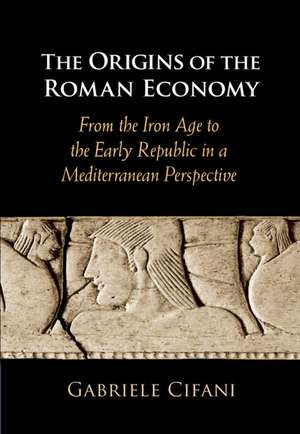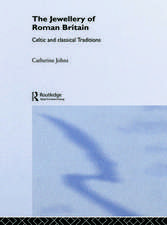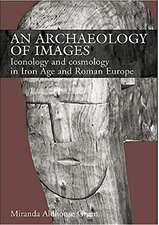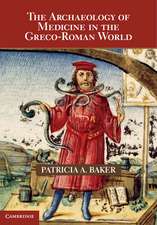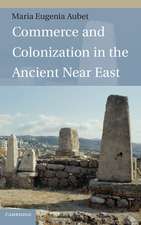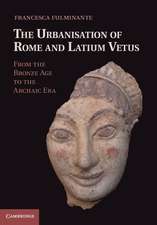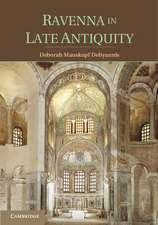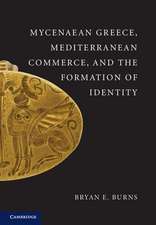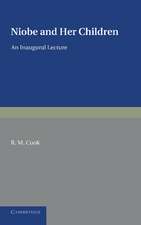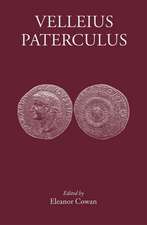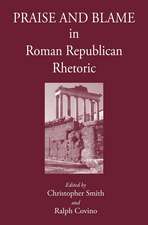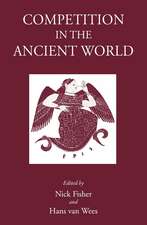The Origins of the Roman Economy: From the Iron Age to the Early Republic in a Mediterranean Perspective
Autor Gabriele Cifanien Limba Engleză Hardback – 16 dec 2020
Preț: 881.95 lei
Preț vechi: 1025.52 lei
-14% Nou
Puncte Express: 1323
Preț estimativ în valută:
168.76€ • 176.20$ • 139.67£
168.76€ • 176.20$ • 139.67£
Carte tipărită la comandă
Livrare economică 04-18 aprilie
Preluare comenzi: 021 569.72.76
Specificații
ISBN-13: 9781108478953
ISBN-10: 1108478956
Pagini: 466
Ilustrații: 68 b/w illus. 11 tables
Dimensiuni: 183 x 260 x 26 mm
Greutate: 1.13 kg
Editura: Cambridge University Press
Colecția Cambridge University Press
Locul publicării:New York, United States
ISBN-10: 1108478956
Pagini: 466
Ilustrații: 68 b/w illus. 11 tables
Dimensiuni: 183 x 260 x 26 mm
Greutate: 1.13 kg
Editura: Cambridge University Press
Colecția Cambridge University Press
Locul publicării:New York, United States
Cuprins
1. Introduction; 2. Notes on the geographical context of early Rome; 3. The beginnings of a longue durée; 4. The Early Iron Age (Latial Phases II and III); 5. A settlement unlike others: the economic background to the rise of Rome; 6. Latial Phase IV; 7. Latial Phase IV A; 8. Latial Phase IV B; 9. The archaic phase (580–500 BC); 10. Modelling the demography and consumption; 11. People, places, times and institutions of roman archaic economy; 12. The economics of the early calendar; 13. The early Latins overseas; 14. The Fifth century BC; 15. Crisis and opportunities in the fifth century BC; 16. The archaeological evidence of the fourth century BC; 17. The fourth century transformations and the end of the roman archaic economy; 18. Epilogue; Appendices.
Recenzii
'How did a single settlement in the Tiber valley become the centre of the most successful and longest-lasting of the world's empires? In this study of Rome's early economic history C. points us towards some of the answers.' Michael Fallon, Classics for All
'… it draws on an impressive knowledge of both textual and archaeological sources, and introduces recent methodological innovations and theoretical perspectives in a synthetic treatment of early Rome's economic development.' Tymon de Haas, Bryn Mawr Classical Review
'… it draws on an impressive knowledge of both textual and archaeological sources, and introduces recent methodological innovations and theoretical perspectives in a synthetic treatment of early Rome's economic development.' Tymon de Haas, Bryn Mawr Classical Review
Notă biografică
Descriere
Focuses on the economic history of the community of Rome from the Iron Age to the early Republic.
